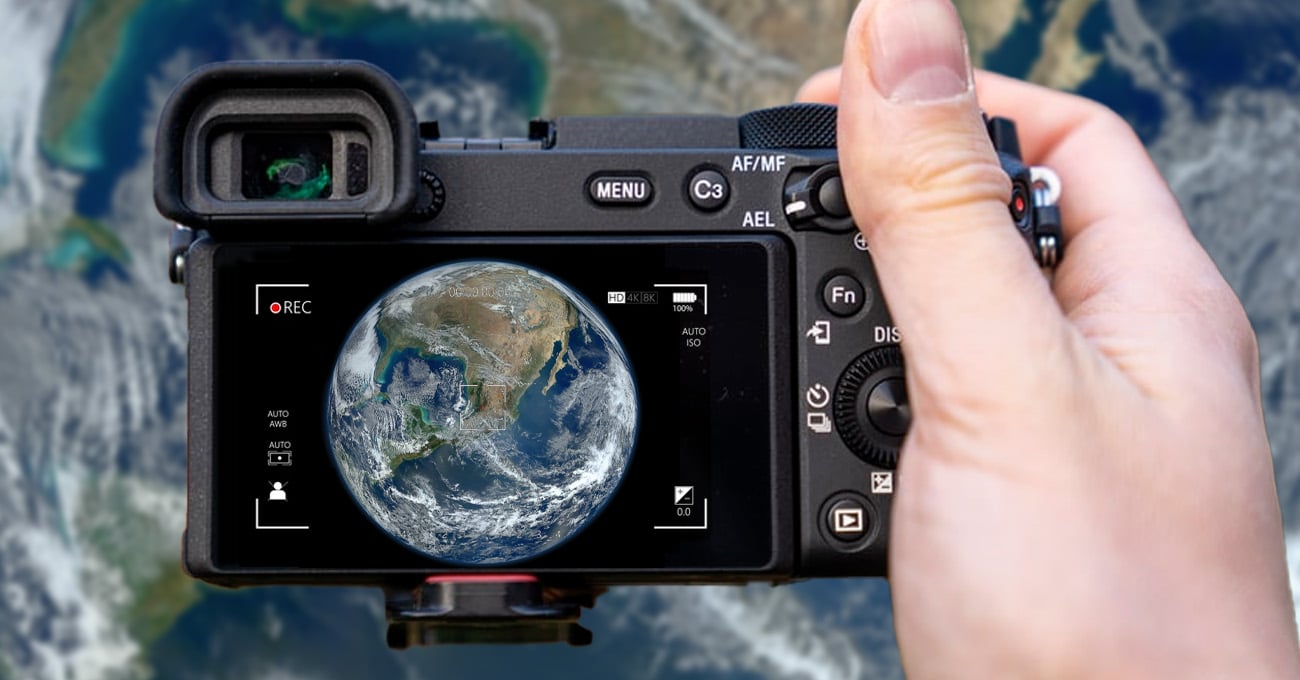PHO 422: Global View of Photography
Gain the ability to create work that adresses international and local perspectives
Contemporary photographers must be prepared to produce work that appeals to a global audience. You will research photographers and creative image makers who produce international work. Based upon your findings, you will develop and produce a multi-faceted photographic campaign focused on gaining the attention of an international audience. By considering cultural differences, you will develop the cultural sensitivity required to be a global creative and the skills to effectively research compelling and contemporary imagery for domestic and international audiences.

About This Course
Project-Based Learning
Students will undertake three multi-faceted photography projects that afford the opportunity for feedback and iteration. Students will combine the ideas of painting and portrait photography to create a portrait (or portraits) that represent a specific culture and visual reference; pick one (1) of the following topics (food, fashion, OR music) and create a photo series for a specific culture or subculture; and create a photomontage or photo illustration to promote social change and awareness, using culturally specific symbols, beliefs, or values.
What Skills Will I Develop?
Students in this course can expect to learn to:
- Explore and research international photographers and creative image makers, cultural differences, visually communicating with global and diverse audiences, and the work of exceptional photographers from different continents and cultural background.
- Develop cultural sensitivity that is demonstrated through creative and written work.
- Professionally present research and concepts in alignment with the course content, assignment criteria, and presentation guidelines.
- Actively participate in class discussions/meetings, constructively assess the work of your peers, and enhance your creative work based upon feedback.
- Demonstrate effective and efficient use of your digital camera and create photographs with careful consideration of lighting, color, exposure, composition, art/design principles, and point of view in alignment with the course content and assignment criteria.
- Effectively conceptualize and post-process (cull, edit/enhance, and retouch), manage files, explore multiple image making techniques, and produce compelling, innovative, and professional portfolio ready images.
- Plan, stage, and execute photo shoots by adapting for a variety of settings and lighting situations (studio and on-location), in fulfillment of project goals. Reshoot when necessary or recommended.
- Apply and demonstrate technically proficient retouching, careful consideration of contrast, cropping, exposure, and color correction techniques to improve or enhance photographic images to a professional level utilizing appropriate software such as Adobe Lightroom and Photoshop.
What Software and Supplies Do I Need?
- A computer with Internet connection (56 Kbps modem or faster).
- Access to a standalone digital camera with manual control over ISO, Aperture, Shutter Speed, and White Balance, that allows for shooting in RAW format.
- Adobe Lightroom Classic or equivalent program.
- Basic experience in the software package needed for this course.
Course Instructor(s)
The course is taught by the following instructor(s):
 Jill Mott
Jill Mott
Jill Mott is a photographer, journalist and passionate instructor dedicated to encouraging life-long learning, developing social and professional skills as well as a mastery of technical skills. Jill brings to her classes 10 + years experience in journalism, both nationally and abroad, and an interactive teaching style that promotes discussion and awareness of current topics and opportunities to think out of the box.
View all Faculty
Course Outline
Revealing, Representation, and Revolution
We will reflect on the work of individual photographers and the impact of their work on politics, the economy, and social awareness. We will explore how a single image can come to represent an entire culture, continent or country.
Etiquette, Culture, Celebrations
We will begin to discuss the importance of ethics and cultural sensitivity while photographing. We address how to be considerate while creating images and producing content.
Connections, Expression, and Symbols
We will explore how individual photographers connect with specific cultural audiences using myth and symbolism, and by addressing expectations about gender, body type, and color.
Awareness, Campaigns, Changes
We will explore and research individual photographers and visual campaigns that create change and awareness through the publication and dissemination of images.
Frequently Asked Questions (FAQ)
How Do The Courses Work?
Our courses are project-based and instructor-led. In each course you’ll complete a series of lectures, projects, discussions, and critiques designed to stretch your creative skills. Weekly assignment deadlines keep you on track, so you can build your studies around your schedule. Two live Zoom meetings in this course provide the opportunity to work 1to1 with your instructor.
Who Are The Instructors?
Our courses are developed and taught by our industry-leading faculty of creative professionals. This means that you’ll learn in-demand skills, get feedback on your work, and build a portfolio of creative work. View our Student Gallery for featured student projects.
When Can I Start?
Classes start January, April, and August, and this course is completed in a 15-week term. This course is part of a Bachelor's Degree program at Sessions College. You can enroll in this course on an individual basis or as part of a program.
How Do I Register?
To register for a program, complete our program application. To register for this course on an individual basis, please contact our admissions team at admissions@sessions.edu. An Admissions Advisor will contact you to setup your enrollment.
| Course Tuition and Fees | |
|---|---|
| Tuition | $300/credit |
| Registration Fee* | $200 |
| Total Course Price | $1100 |
Registration fees are nonrefundable after 5 days from enrollment.
Is Sessions College Accredited?
Yes. Since 2001, Sessions College has been accredited by the Distance Education Accrediting Commission (DEAC). The Distance Education Accrediting Commission is listed by the U.S. Department of Education as a recognized accrediting agency and is recognized by the Council for Higher Education Accreditation (CHEA).
RELATED PROGRAMS AT SESSIONS COLLEGE:





















